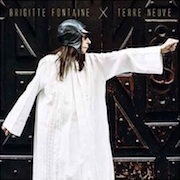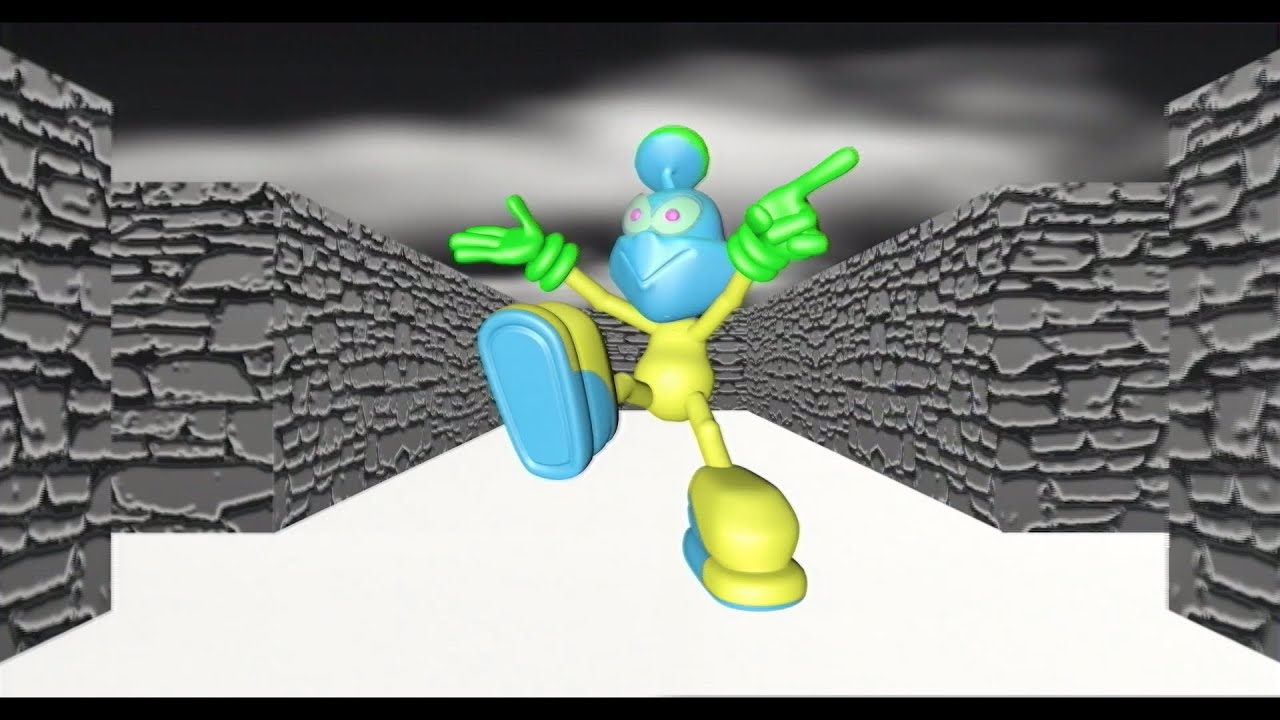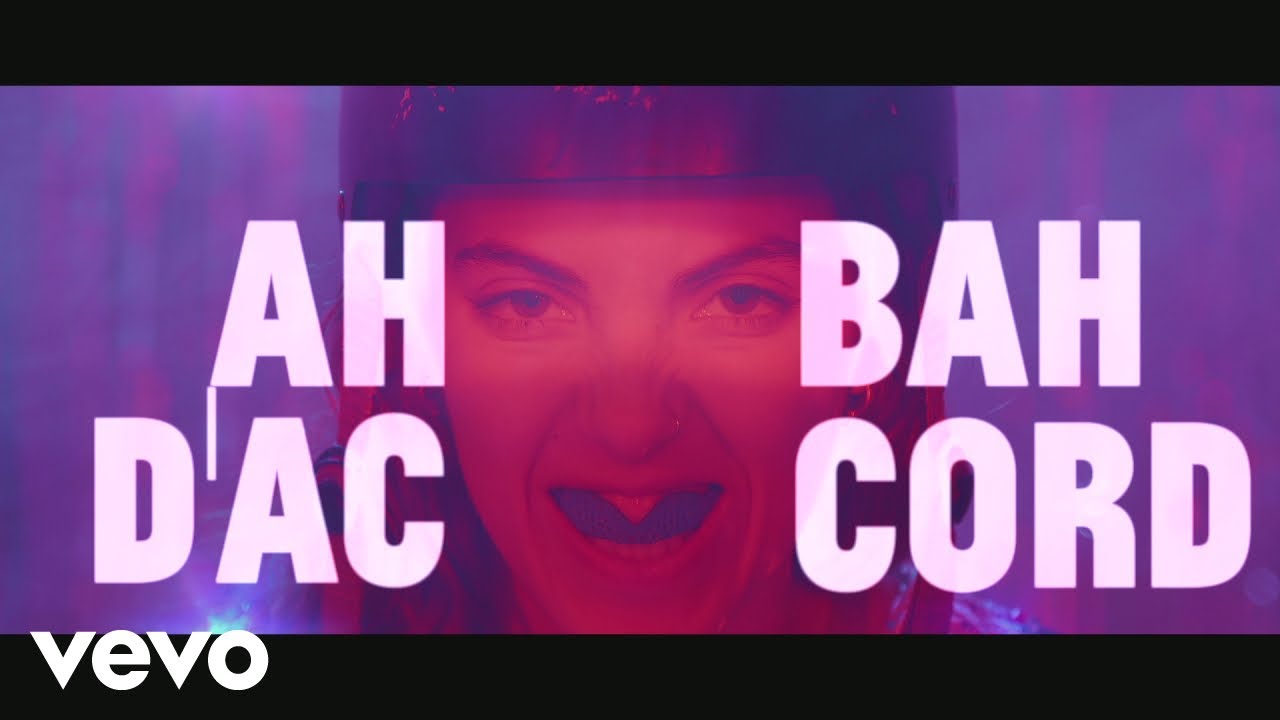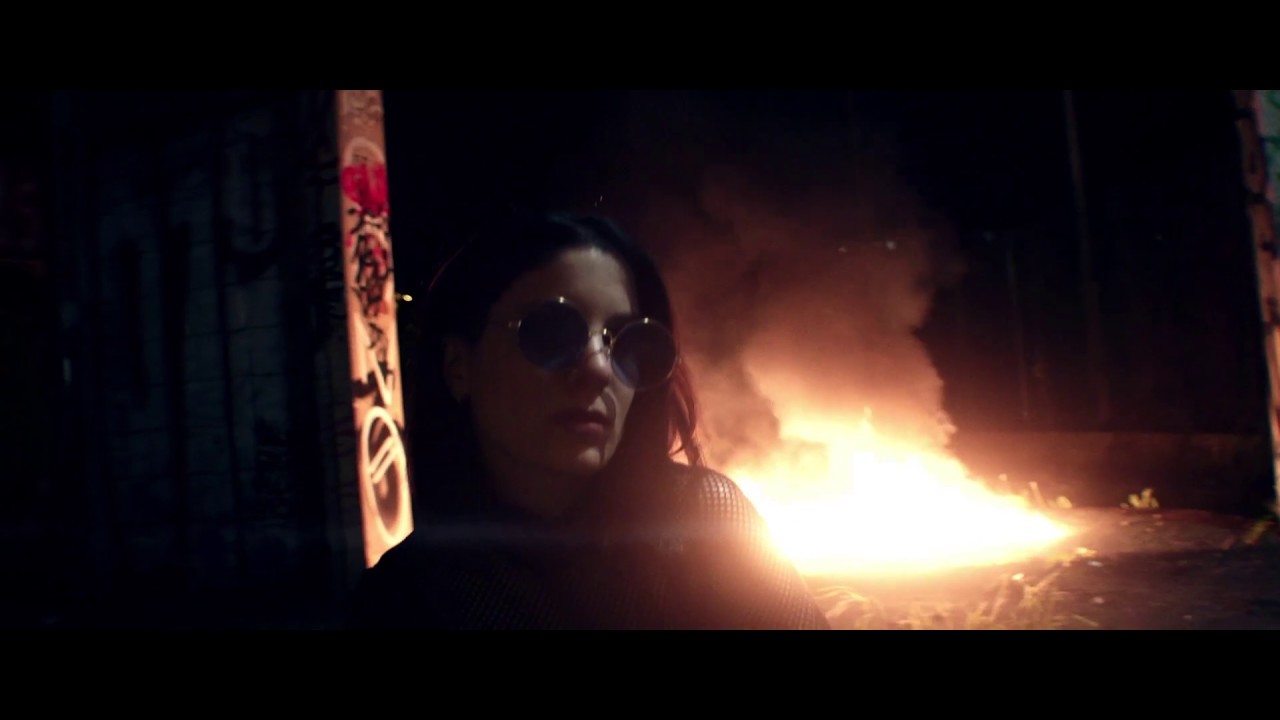The first column of the year – or at least this intro – is coming to you from Charleville-Mézières, a commune in the north-eastern Ardennes region of France. Originally two separate towns, they were united in 1966. Charleville was the birthplace of the enfant terrible of French poetry – the owners of Brasserie L’Univers volunteer the fact that their establishment was once his favoured drinking spot, and later I pass a Vapeur De Rimbaud vape store – and, more recently, where singer Fishbach was raised.
My ex-boss, and former member of a French punk/new wave act, is now second in command at the Institut International de la Marionette – aka the International Puppetry Institute (‘marionette’ in French refers to all puppets, not just string-controlled ones). Charleville-Mézières is sometimes referred to as the world capital of puppetry arts and hosts a biennial puppetry festival, while the Place Winston Churchill is overlooked by a giant automaton, Le Grand Marionnetiste, which every hour recites and performs episodes from medieval legend The Four Sons Of Aymon.
And in a pub called Kindling, which looks like Kin ling at the moment as the ‘d’ has come off the sign, I found the source of the cover and title of the Drive With A Dead Girl album reviewed below: the Scorpion darts machine produced by Pennsylvania company Merit Industries. Initially I thought the cover art was deliberately crap; now I wonder if it isn’t particularly redolent of northern French pubs.
Also hugely evocative of the north is Puce Moment’s album ORG, an album of compositions for four mechanical organs from Le Café Des Orgues in Herzeele. Coincidentally, album blurb describes the duo as being like “puppet masters.” I’ll be writing more about them later this year, but for now their ‘Adinkerke’ (which is the name of a Belgian village near the border) opens a mix that also features accordionist and imperious, Catherine Ringer-style vocalist Karine Germaix, the ever-excellent Chicaloyoh, and selections from all the albums featured this month.
Brigitte Fontaine – Terre Neuve
(Verycords)
If I had to pick just one figure who embodied, and who was crucial in shaping, underground French chanson it would be Brigitte Fontaine. She is a bridge between the golden age of la chanson française and its practitioners like Brel, Ferré, Brassens and Barbara (she shared a bill with the latter two), and the experiments to come from 1968 onwards. She went from the whip-smart jazzy pop of her 1966 debut, via the enchanting collaboration with Jean-Claude Vannier on Brigitte Fnontaine Est… Folle and into her work with partner Areski for Pierre Barouh’s proto ‘World Music’ label Saravah. Comme À La Radio, recorded with the Art Ensemble of Chicago, is her best known with good reason – it opened up new vistas for French song and is a still-unique and beguiling dissolution of chanson into avant-garde jazz – but the Saravah releases that followed are also essential.
Fontaine has very little to prove now, and on Terre Neuve she sounds utterly unburdened by expectation. On lead single ‘Vendetta’ she recalls Mark E Smith in some ways, taking an initially perfunctory indie rock chug and making it giant-sized merely through her growling, howling presence. And it features the declamation “Assez parlementé, vive la lutte armée, qu’on empale tous les mâles” (“Enough negotiations, up with armed struggle, let’s impale all males.”) There’s almost no residual sweetness to her voice now – it’s grainy and phlegmy, perfectly complementing the angular stomp of ‘Les Beaux Animaux’, the clomping post punk of ‘J’irai Pas’ and crunching noise-out ‘Hermaphrodite’, but the title track and the folk-bluesy ‘Parlons D’Autre Chose’ also inject a little welcome lyricism, and ‘Chrysler’ borders on the anthemic.
Planet 1999 – Devotion EP
(PC Music)
The first band signed to PC Music, this trio – who have also contributed to Charlie XCX Charli album – represent both an extension and an inversion of the label’s aesthetic. The fascination with ultrabrite 80s and 90s pop surfaces remains but the eyewatering fizziness and sonic overload have given way to something much more pared down. If PC Music has previously been about pushing pop maximalism to breaking point, Devotion feels like an attempt to find out how little you can inject into tracks and still have them shimmer. ‘Replay’ features a dry, programmed drum track, an almost perfunctory indie pop bassline (there are many traces here of the band’s shoegaze roots), a lead synth line – a second one comes in for the chorus – and singer Caro’s swirling, autotuned vocals. There might be a little delay here, some reverb there but it’s all simple, legible, clear as a bell. The one-word titles also convey the sense of pop thrills and themes being distilled to their essence – ‘Party’, ‘Night’, ‘Awake’ – and everything comes in at under three minutes. Pop one of these colourful capsules and you’ll get a momentary tingle, but taken together they leave a longer-lasting, exquisitely bittersweet aftertaste.
Delphine Dora – L’Inattingible
(three:four/Meakusma)
Pianist, organist and singer Dora rarely stops releasing music, whether it’s on her own Wild Silence label or elsewhere, alone or in collaboration with our own Sophie Cooper, guitarist Mocke or singer Eloïse Decazes. It’s probably futile to attempt to qualify certain releases as more significant than others, but L’Inattingible has the feel of a big statement – for starters, Dora has taken collaboration much further than in the past and the cast of contributors is extensive. The fourteen contributors include vocalists Jackie McDowell, Laura Naukkarinen and Caity Shaffer, several multi-instrumentalists including Gayle Brogan on e-bowed zither, guitar, hammered dulcimer and aeolian chimes, and she’s even integrated Québecquois duo Le Fruit Vert. Those familiar with Dora’s work will know about the melodically and emotionally indeterminate spaces she inhabits but there’s plenty that is new here: she sings entirely in French for the first time, and the process of crafting (writing and editing) the 21 pieces has been more involved than the spontaneous approach she has previously favoured. Without becoming overburdened, Dora’s voice and piano are richly embellished – the gorgeous ‘Loin’ floats on a bed of keyboard, strings, flute and a gathering cloud of vocals, while the brief ‘Métamorphose Déracinée’ brings together spoken word, distant, beguiling oboe, running water, piano and creaking, fluttering and rattling noises. Each track is like another glimpse into an abandoned ornamental garden; vegetation grown wild, water still flowing through cracked fountains, echoes of voices carried on the breeze.
Juniore – Un Deux Trois
(Outré)
Juniore’s unexpected UK breakthrough over the past couple of years has been a reminder of the appetite over here for a certain, very 60s-centric French ‘cool’. Juniore clearly tick many of the requisite boxes – female lead singer with fringe, snappy hooks, twangy guitar and slogan-like titles. Focusing on image of course does the talent of singer, guitarist and principle songwriter Anna-Jean a disservice, but then Juniore are nothing if not strong on concept – the album title cannily suggests both a refresher course in pop fundamentals and a recap of French-language basics. In fact, Un Deux Trois is a little more expansive than its predecessors (including the ‘story-so-far’ compilation Magnifique). The garage/yé-yé nuggets are still present and correct – lead single ‘Ah Bah D’Accord’ and ‘La Vérité Nue’ zip along effortlessly – but the songs, including vaguely Arabic-sounding instrumental ‘Walili’ and ballad ‘Que La Nuit’ with its seaside-resort-out-of-season feel, seem like they’re sitting in a bigger space, a reverberating cavern that band member and producer Samy Osta decorates with all manner of zingy detail.
Drive With A Dead Girl – Scorpion
(Jarane/Bruit Blanc)
Scorpion is album number ten for this Lille four piece who, for the last 12 years, have been toiling at their own pace, gradually extending the scope of their murky, Sonic Youth and post rock-influenced songs. But Scorpion does feel like the turning of a corner. The nocturnal, near-gothic ambiance of previous releases is still palpable but on the first two songs – the title track and ‘All Alone’ – they sound like they had a lot of fun with a mixing desk, pushing some tracks into overload and burying others in dub-like fashion. The splendid ‘All Alone’ builds from minor-key, underwater folk to searing peaks and moments that sound like cassette ribbon being chewed up. The remainder of this (highly recommended) album is sonically more stable and pared down – the languid two-chord chorus section of ‘Dream On Doryphone’s is one of many gorgeous moments – but hopefully the two opening tracks also presage further, wilder mixing experiments.
Various Artists – LE RAP2FILLES SOUTERRAINE
(La Souterraine)
&
ANTHA – Spleen
(9e Circle)
La Souterraine have previously brought us a compilation rounding up the best of France’s alternative folk scene, and one dedicated to synth pop, but now a clearly increasing interest in the country’s grassroots rap scene has resulted in this – the first compilation of its kind, put together in collaboration with the organisers of freestyle competition Rap2Filles, of female rappers. Check out Instagram account and you’ll find a whole host of home-made videos that range from the hardcore braggadocio to tales of chatting to one’s neighbour about Dickens – LE RAP2FILLES SOUTERRAINE is the result of hours spent scrolling through the posts to find the most promising performers. We got some low-slung trap on Turtle White’s ‘Freestyle En Bale En Plus’ and singer Savannah Sweet but also the synth brass stabs and baile funk bounce of Vicky R’s ‘Shooter’, the more drill-like ‘One Shot Session’ by the excellent Illustre and boom-bap and ravey synths of Sensei H’s ‘Roya’.
Hopefully this collaboration will bear more fruit, but in the meantime the even more recent La Souterraine comp, Rurbaines points us in the direction of some other rap filles – like ANTHA’s luxuriantly moody album Spleen, released in December. Previously one half of duo Orties with her twin sister Kincy, which brought the spirit of their goth rock beginnings into a rap context. The name Orties, and the title of ANTHA’s debut solo album, make reference to Baudelaire, and the notion of ‘spleen’ – a “state of pensive sadness and melancholy” – feels particularly well suited to Auto-Tuned vocals and trap beats. But Spleen can also be pretty uplifting, with its fat, gooey basslines, synths that sparkle like chandeliers and boasts about shagging Batman in his Batmobile to leaven the angst and gore.
HAJJ – Souffrance FM
(In Paradisum)
&
Somaticae – Amesys
(In Paradisum)
You can dip into some more Francophone rap (among other things) on one of two great new releases from In Paradisum. Hajj is a composer and visual artist who presents a monthly show called Souffrance FM on LYL – an online radio station based in Lyon and Paris. Souffrance FM plays out like a typical show in that it’s a non-stop mix blending rap ‘céfran’ (that’s ‘français’ to you and me) and dark ambient and industrial tracks. Given trap’s ambient tendencies this works a treat, with the smeared autotune textures of Coucou Chloé and Lala &ce 67’s ‘Touched’, baby-voiced lyrical assassin Jorrdee’s ‘Sac De Frappe’ and Oboy’s stark ‘Cobra’ slipping in perfectly alongside Raime and Berlin-based Ana Jikia.
Amesys is a return for techno producer Amédée De Murcia, who also releases dreamier work under the name Roger West. Somaticae is at the other extreme, all crunching kicks and sculpted bursts of coruscating white noise. Which doesn’t mean there’s a lack of variety – ‘Trovicor’ is pacey and twitchy while the title track is a brutal slice of dub noise, like a more ragged Scorn.
Clémentine March – Le Continent
(Lost Map)
March has played and plied her trade with acts including Snapped Ankles, Bas Jan, Rozi Plain and Alabaster dePlume and Julien Gasc (see below) but recently been putting her energies into her solo project. After an EP on Belgian label Freaksville, her debut album is out on The Pictish Trail’s Lost Map. The Scottish connection feels relevant as Le Continent – described by March as a “farewell to my native country” – sits midway between British, and particularly Scottish indie, like The Pastels or Orange Juice (particularly the indie-soul of ‘Late In The Evening’, which wouldn’t be too out of place on The Orange Juice) and that Stereolab-y nexus of Gallic and Brazilian pop and electronics. The combination of artful composition and charmingly scruffy performance repeatedly pays dividends whether its in the twisty melody of the title track, a sweet duet with Sofia Bolt on ‘Le Monte Olympe’ or ‘Abribus’ which sees March let loose with her freakier tendencies.
NCY Milky Band – Our Gurus
(BMM)
I’m not quite sure where NCY Milky Band’s name comes from, but there definitely is something milky about their sound, creamy even – their take in jazz and what they refer to as the ‘French rare groove’ of 70s acts and arrangers like Cortex, Roger Roger and Jean-Claude Vannier. The latter gets a tribute here, and in fact the whole album is the drums, bass, keyboard and sax quartet’s take on tunes by their heroes and heroines, including Dorothy Ashby, Madlib and Boards Of Canada. They open with their interpretation of the Scottish duo’s ‘Sixtyniner’ and its oozy, half-melted feel seems to drip on to the rest of the record. Far from the clarity and crispness sought on many jazz recordings NCY Milky Band delight in a squishy, fondant mix. The initially sharp ‘Madlib’ demonstrates their conventional chops before taking a detour through a tunnel of fluffy reverb.
No Tongues – Les Voies De L’Oyapock (Ormo)
Another French jazz four-piece but of a rather different nature. Emerging from Nantes, the group attempt to commune with folk traditions and ceremony, emerging with something that feels both organic and unearthly. For Les Voies De L’Oyapock they travelled the Oyapoque river that borders Brazil and French Guyana to meet and work with the Teko and Wayãpi people of two Amerindian villages, Camopi and Trois-Sauts. The contact with the environment is tangible – on the first track, ‘Pirogue’, we first hear voices, then some kind of motor starting up (perhaps a motorbike or a scooter), which becomes an elements of the performance, a base over which the band (trumpet, sax and clarinet, double bass and ‘objects’) play circular, overlapping figures. One feature of the album is the mimicry of the human voice – shrieking, wailing, chanting – while at times the instruments intertwine with actual voices, like the gentle singer who appears to be leading the band on ‘Mbatui’, or even local wildlife and running water. Equally, as on the groaning ‘Moyutule’, they can knock you off your feet with the sheer power and inventiveness of their playing.
Julien Gasc – L’Appel De La Forêt (Born Bad)
Gasc is fairly regular fixture in this column, for his solo work but also as a member of the mighty Aquaserge. In a turnaround from its more straightforwardly rocky predecessor Kiss Me, You Fool!, L’Appel De La Forêt presents a cleaner sound but also a return to the compositional sophistication and supple, urbane grooviness that marks out his best work. The intro to ‘La Trève Internationale’ would fit in well on NCY Milky Band’s album, and the title track kicks off with a tasty breakbeat and builds into something that’s very Alain Gourager or Karl Heinz Schäfer-esque. It’s also an album that seems to be filled with love of nature, and love generally. With the instantly recognisable Catherine Hershey providing backing vocals across the whole album, each song becomes like a dialogue between lovers – ‘Les Flots’ is a call, in the midst of dark times, to “live for love, and love to live” and enjoy the “the rain that fills the river, it’s all for us baby”. And although there’s always something a little detached about Gasc’s vocals, he sounds genuinely engaged by these themes.
Slift – Ummon
(Vicious Circle)
Slift do spacerock, and not by halves either. This trio from Toulouse have been putting out music since 2017 but Ummon is their magnum opus, the inevitable sci-fi inspired space opera double album that has something to do with Titans going in search of their creators before one of them, Hyperion, returns to earth. Grandiose titles include ‘Dark Was Space, Cold Were The Stars’ and ‘Thousand Helmets Of Gold’. And it’s great fun – the first half is frequently delivered with the rhythm section at full gallop and is replete with flaming hot riffs, twiddly prog solos and full-throated vocals. ‘Dark Was Space’ and the subsequent ‘Aurore Aux Confins’ move into more stately territory (presumably representing the majesty of the universe’s furthest reaches), with soaring, choral vocal sections and twirling ribbons of guitar. Ummon feel the noise!
Quietus Mix 20
Puce Moment – ‘Adinkerke’ (Vert Pituite La belle)
Chicaloyoh – ‘Boli Armenii’ (Màgia Roja)
Karine Germaix – ‘L’Apnée’ (Self-Released)
Juniore – ‘La Verité Nue’ (Outré)
Clémentine March – ‘Abribus’ (Lost Map)
The NCY Milky Band – ‘Vannier Or Gainsbourg?’ (BMM)
Slift – ‘Dark Was Space, Cold Were The Stars’ (Vicious Circle)
Drive With A Dead Girl – ‘All Alone’ (Jarane/Bruit Blanc)
Brigitte Fontaine – ‘Vendetta’ (Verycords)
Delphine Dora – ‘Sônge’ (three:four/Meakusma)
No Tongues – ‘Moyutule’ (Ormo)
Somaticae – ‘Amesys’ (In Paradisum)
Antha – ‘Les Tourments’ (9e Circle)
Planet 1999 – ‘Replay’ (PC Music)
Pearly – ‘Polar’ (La Souterraine)
Julien Gasc – ‘L’Appel De La Forêt’ (Born Bad)





